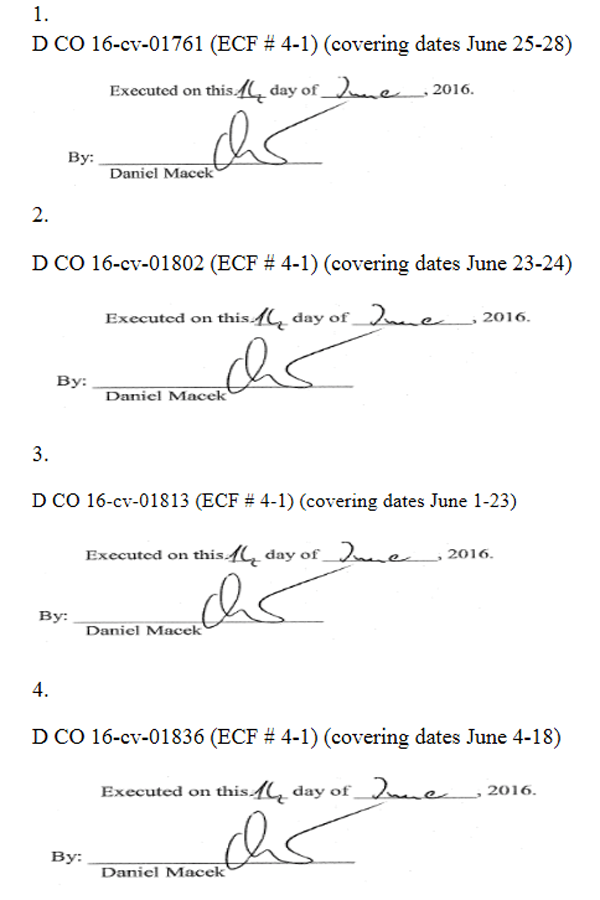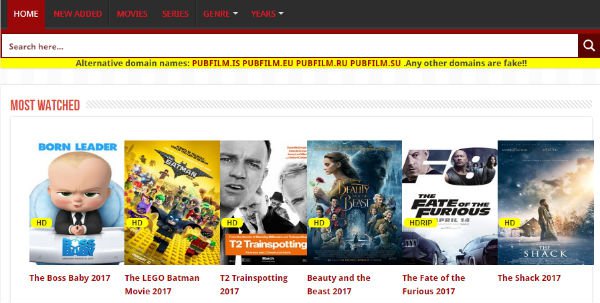 Last Monday, during a town hall meeting in New York, Disney CEO Bob Iger informed a group of ABC employees that hackers had stolen one of the company’s movies.
Last Monday, during a town hall meeting in New York, Disney CEO Bob Iger informed a group of ABC employees that hackers had stolen one of the company’s movies.
The hackers allegedly said they’d keep the leak private if Disney paid them a ransom. In response, Disney indicated that it had no intention of paying. Setting dangerous precedents in this area is unwise, the company no doubt figured.
After Hollywood Reporter broke the news, Deadline followed up with a report which further named the movie as ‘Pirates of the Caribbean: Dead Men Tell No Tales’, a fitting movie to parallel an emerging real-life swashbuckling plot, no doubt.
What the Deadline article didn’t do was offer any proof that Pirates 5 was the movie in question. Out of the blue, however, it did mention that a purported earlier leak of The Last Jedi had been revealed by “online chatter” to be a fake. Disney refused to comment.
Armed with this information, TF decided to have a dig around. Was Pirates 5 being discussed within release groups as being available, perhaps? Initially, our inquiries drew a complete blank but then out of the blue we found ourselves in conversation with the person claiming to be the Disney ‘hacker’.
“I can provide the original emails sent to Disney as well as some other unknown details,” he told us via encrypted mail.
We immediately asked several questions. Was the movie ‘Pirates 5’? How did he obtain the movie? How much did he try to extort from Disney? ‘EMH,’ as we’ll call him, quickly replied.
“It’s The Last Jedi. Bob Iger never made public the title of the film, Deadline was just going off and naming the next film on their release slate,” we were told. “We demanded 2BTC per month until September.”
TF was then given copies of correspondence that EMH had been having with numerous parties about the alleged leak. They included discussions with various release groups, a cyber-security expert, and Disney.

As seen in the screenshot, the email was purportedly sent to Disney on May 1. The Hollywood Reporter article, published two weeks later, noted the following;
“The Disney chief said the hackers demanded that a huge sum be paid in Bitcoin. They said they would release five minutes of the film at first, and then in 20-minute chunks until their financial demands are met,” HWR wrote.
While the email to Disney looked real enough, the proof of any leaked pudding is in the eating. We asked EMH how he had demonstrated to Disney that he actually has the movie in his possession. Had screenshots or clips been sent to the company? We were initially told they had not (plot twists were revealed instead) so this immediately raised suspicions.
Nevertheless, EMH then went on to suggest that release groups had shown interest in the copy and he proved that by forwarding his emails with them to TF.
“Make sure they know there is still work to be done on the CGI characters. There are little dots on their faces that are visible. And the colour grading on some scenes looks a little off,” EMH told one group, who said they understood.
“They all understand its not a completed workprint.. that is why they are sought after by buyers.. exclusive stuff nobody else has or can get,” they wrote back.
“That why they pay big $$$ for it.. a completed WP could b worth $25,000,” the group’s unedited response reads.
But despite all the emails and discussion, we were still struggling to see how EMH had shown to anyone that he really had The Last Jedi. We then learned, however, that screenshots had been sent to blogger Sam Braidley, a Cyber Security MSc and Computer Science BSc Graduate.
Since the information sent to us by EMH confirmed discussion had taken place with Braidley concerning the workprint, we contacted him directly to find out what he knew about the supposed Pirates 5 and/or The Last Jedi leak. He was very forthcoming.
“A user going by the username of ‘Darkness’ commented on my blog about having a leaked copy of The Last Jedi from a contact he knew from within Lucas Films. Of course, this garnered a lot of interest, although most were cynical of its authenticity,” Braidley explained.
The claim that ‘Darkness’ had obtained the copy from a contact within Lucas was certainly of interest ,since up to now the press narrative had been that Disney or one of its affiliates had been ‘hacked.’
After confirming that ‘Darkness’ used the same email as our “EMH,” we asked EMH again. Where had the movie been obtained from?
“Wasn’t hacked. Was given to me by a friend who works at a post production company owned by [Lucasfilm],” EMH said. After further prompting he reiterated: “As I told you, we obtained it from an employee.”
If they weren’t ringing loudly enough already, alarm bells were now well and truly clanging. Who would reveal where they’d obtained a super-hot leaked movie from when the ‘friend’ is only one step removed from the person attempting the extortion? Who would take such a massive risk?
Braidley wasn’t buying it either.
“I had my doubts following the recent [Orange is the New Black] leak from ‘The Dark Overlord,’ it seemed like someone trying to live off the back of its press success,” he said.
Braidley told TF that Darkness/EMH seemed keen for him to validate the release, as a member of a well-known release group didn’t believe that it was real, something TF confirmed with the member. A screenshot was duly sent over to Braidley for his seal of approval.
“The quality was very low and the scene couldn’t really show that it was in fact Star Wars, let alone The Last Jedi,” Braidley recalls, noting that other screenshots were considered not to be from the movie in question either.
Nevertheless, Darkness/EMH later told Braidley that another big release group had only declined to release the movie due to the possiblity of security watermarks being present in the workprint.
Since no groups had heard of a credible Pirates 5 leak, the claims that release groups were in discussion over the leaking of The Last Jedi intrigued us. So, through trusted sources and direct discussion with members, we tried to learn more.
While all groups admitted being involved or at least being aware of discussions taking place, none appeared to believe that a movie had been obtained from Disney, was being held for ransom, or would ever be leaked.
“Bullshit!” one told us. “Fake news,” said another.
With not even well-known release groups believing that leaks of The Last Jedi or Pirates 5 are anywhere on the horizon, that brought us full circle to the original statement by Disney chief Bob Iger claiming that a movie had been stolen.
What we do know for sure is that everything reported initially by Hollywood Reporter about a ransom demand matches up with statements made by Darkness/EMH to TorrentFreak, Braidley, and several release groups. We also know from copy emails obtained by TF that the discussions with the release groups took place well before HWR broke the story.
With Disney not commenting on the record to either HWR or Deadline (publications known to be Hollywood-friendly) it seemed unlikely that TF would succeed where they had failed.
So, without comprimising any of our sources, we gave a basic outline of our findings to a previously receptive Disney contact, in an effort to tie Darkness/EMH with the email address that he told us Disney already knew. Predictably, perhaps, we received no response.
At this point one has to wonder. If no credible evidence of a leak has been made available and the threats to leak the movie haven’t been followed through on, what was the point of the whole affair?
Money appears to have been the motive, but it seems likely that none will be changing hands. But would someone really bluff the leaking of a movie to a company like Disney in order to get a ‘ransom’ payment or scam a release group out of a few dollars? Perhaps.
Braidley informs TF that Darkness/EMH recently claimed that he’d had the copy of The Last Jedi since March but never had any intention of leaking it. He did, however, need money for a personal matter involving a family relative.
With this in mind, we asked Darkness/EMH why he’d failed to carry through with his threats to leak the movie, bit by bit, as his email to Disney claimed. He said there was never any intention of leaking the movie “until we are sure it wont be traced back” but “if the right group comes forward and meets our strict standards then the leak could come as soon as 2-3 weeks.”
With that now seeming increasingly unlikely (but hey, you never know), this might be the final chapter in what turns out to be the famous hacking of Disney that never was. Or, just maybe, undisclosed aces remain up sleeves.
“Just got another comment on my blog from [Darkness],” Braidley told TF this week. “He now claims that the Emoji movie has been leaked and is being held to ransom.”
Simultaneously he was telling TF the same thing. ‘Hacking’ announcement from Sony coming soon? Stay tuned…..
Source: TF, for the latest info on copyright, file-sharing, torrent sites and ANONYMOUS VPN services.

 Sean Parker is no stranger when it comes to online piracy.
Sean Parker is no stranger when it comes to online piracy. 




 In recent years, most large pirate sites have faced domain name issues of some kind, which can be quite frustrating.
In recent years, most large pirate sites have faced domain name issues of some kind, which can be quite frustrating.



